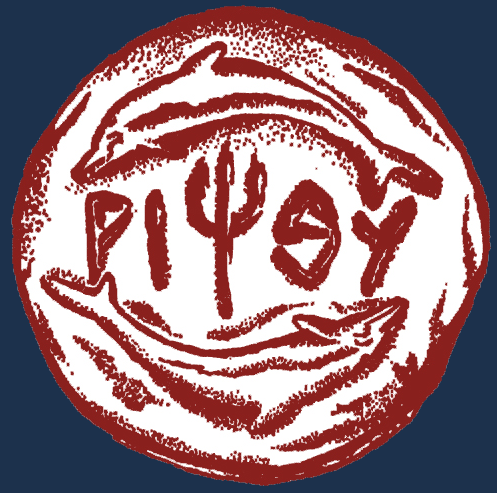George Panagis
- Department of Psychology
- Office: Α1.101, 1st Floor , Building Α1
- 28310 – 77544 (office)
- 28310 – 77546/47 (laboratory)
- panagis@uoc.gr
- Full CV
- Profile
- Research
- Publications
- Teaching
Brief CV
I graduated from the Department of Philosophy & Social Studies (1992) and the Department of Psychology (1995) at the University of Crete. I received my Ph.D. degree from the Medical School of the University of Crete (1992-1996). My doctoral dissertation focused on the role of ventral pallidum in reward. Between 1997 and 1998, I worked as a post-doctoral research fellow at the Karolinska Institute of Stockholm, where I studied the psychotropic and addictive effects of nicotine in experimental animals. My research focuses on the pharmacological and neural mechanisms for reward, drug addiction, and psychiatric disorders. I also conduct basic research in order to delineate the roles of predisposing and/or protective factors in the development of drug abuse and addiction. Experimental approaches include various behavioral methodologies, (intracranial self-stimulation, place preference, open field, elevated plus maze, forced swim test), intra-cerebral, and systemic pharmacology). In collaboration with other researchers, we have conducted neurochemical, histochemical, and morphological analyses to determine cellular and molecular correlates for the behaviors that we study.
Career Development
- University of the Crete (1995-97, 1999-2000)
- Adjunct Faculty Appointment
- Karolinska Institute (1997-98)
- Post-doctoral Fellow
- University of Crete (2000 – Today)
- Faculty Member
Research Interests
My research focuses on the pharmacological and neural mechanisms for reward, drug addiction, and psychiatric disorders. I also conduct basic research in order to delineate the roles of predisposing and/or protective factors in the development of drug abuse and addiction. Experimental approaches include various behavioral methodologies, (intracranial self-stimulation, place preference, open field, elevated plus maze, forced swim test), intra-cerebral, and systemic pharmacology). In collaboration with other researchers, we have conducted neurochemical, histochemical, and morphological analyses to determine cellular and molecular correlates for the behaviors that we study.
Research Grants
- “The role of the endogenous cannabinoid system on behavior and reward mechanisms: An experimental study on the rat,” Ministry of Education (Heraklitos I), Grant for the doctoral research of S. Vlachou.
- “Synthesis and pharmacological study of new cannabinoid analogs” General Secretariat-Ministry of Research and Development (EPAN), 2003-2006, Principal Team Member.
- “Potential reinforcing properties of cannabinoids after acute administration and following disturbed homeostasis: An experimental study in the rat” Research Committee of the University of Crete, 2006-2007, Principal Investigator (PI).
- “Study of the role of 5-ΗΤ2A and 5-ΗΤ2C receptors in the reinforcing actions of cocaine” Research Committee of the University of Crete, 2007-2009, PI.
- “Study of brain reward function after acute and chronic administration of mood stabilizers” Research Committee of the University of Crete, 2008-2010, PI.
- “Unraveling the molecular/cellular alterations and neuroadaptations developed after chronic treatment with lithium and aripiprazole: Implications for understanding the neurobiology and advancing the pharmacotherapy of bipolar disorders” Research Committee of the University of Crete, 2011-2012, PI.
- “Study of the effects of cannabidiol on brain reward and the reward-facilitating effects of addictive drugs” Research Committee of the University of Crete, 2012-2013, PI.
- “Interactions between exercise and brain reward systems: Consequences on drug addiction and synaptic function” Research Committee of the University of Crete, 2014-2016, PI.
Selected Publications
- Papadakakis A., Sidiropoulou K., & Panagis G. (2019). Music exposure attenuates anxiety- and depression-like behaviors and increases hippocampal spine density in male rats. Behavioural Brain Research, 372, 112023. doi: 10.1016/j.bbr.2019.112023.
- Pitsilis, G., Spyridakos, D., Nomikos, G.G., & Panagis, G. (2017). Adolescent female cannabinoid exposure alters the reward-facilitating effects of Δ9-tetrahydrocannabinol and d-amphetamine in the adult male offspring. Frontiers in Neuropharmacology, Front. Pharmacol. 8:225. doi: 10.3389/fphar.2017.0022.
- Katsidoni, V., Fotiadou, M., Pelecanou, M., Sagnou, M., & Panagis, G. (2014). Curcumin, demethoxycurcumin and bisdemethoxycurcumin differentially inhibit morphine’s rewarding effect in rats. Psychopharmacology, 231, 4467-4478.
- Panagis, G., Mackey, B., & Vlachou, S. (2014). Cannabinoid regulation of brain reward processing with an emphasis on the role of CB1 receptors: a step back into the future. Front. Psychiatry 5:92. doi: 10.3389/fpsyt.2014.00092.
- Mavrikaki, M., Kastellakis A., Schintu N., Nomikos, G.G., Svenningsson P., & Panagis, G. (2014). Effects of lithium and aripiprazole on brain stimulation reward and neuroplasticity markers in the limbic forebrain. European Neuropsychopharmacology, 24(4), 630-638.
- Katsidoni, V., Kastellakis A., & Panagis, G. (2013). Biphasic effects of Δ9-tetrahydrocannabinol on brain stimulation reward and motor activity. International Journal of Neuropsychopharmacology, 16, 2273-2284.
- Katsidoni, V., Anagnostou, I., & Panagis, G. (2013). Cannabidiol inhibits the reward-facilitating effect of morphine: involvement of 5-HT1A receptors in the dorsal raphe nucleus, Addiction Biology, 18, 286-296.
- Katsidoni, V., Apazoglou, K., & Panagis, G. (2011). Role of serotonin 5-HT2A and 5-HT2C receptors on brain stimulation reward and the reward-facilitating effect of cocaine. Psychopharmacology, 213, 337-354.
- Mavrikaki, M., Nomikos, G.G., & Panagis, G. (2010). Efficacy of the atypical antipsychotic aripiprazole in d-amphetamine-based preclinical models of mania, International Journal of Neuropsychopharmacology, 13, 541-548.
Fokos, S., & Panagis, G. (2010). Effects of Δ9-tetrahydrocannabinol on reward and anxiety in rats exposed to chronic unpredictable stress, Journal of Psychopharmacology, 24, 767-777. - Vlachou, S., Stamatopoulou, F., Nomikos, G.G., & Panagis, G. (2008). Enhancement of endocannabinoid neurotransmission through CB1 cannabinoid receptors counteracts the reinforcing and psychostimulant effects of cocaine, International Journal of Neuropsychopharmacology, 11, 905-923.
Courses offered at the Undergraduate Level
- Physiological Psychology I: Basic Principles and Sensory Systems (PSY-2401)
- Biopsychology of Mental Disorders (PSY-2403)
- Psychopharmacology of Addiction and Drugs of Abuse (PSY-2404)
- Psychopharmacology of addiction (Seminar: PSY-3406)
- Biopsychology of Anxiety and Anxiety Disorders (Seminar: PSY-3412)
- Basic Techniques and Methods for the Study of Brain and behavior (Lab: PSY-4401)
Courses offered at the Postgraduate Level
- Neurobiology, Psychopharmacology and Pathogenesis of Drug Dependence

